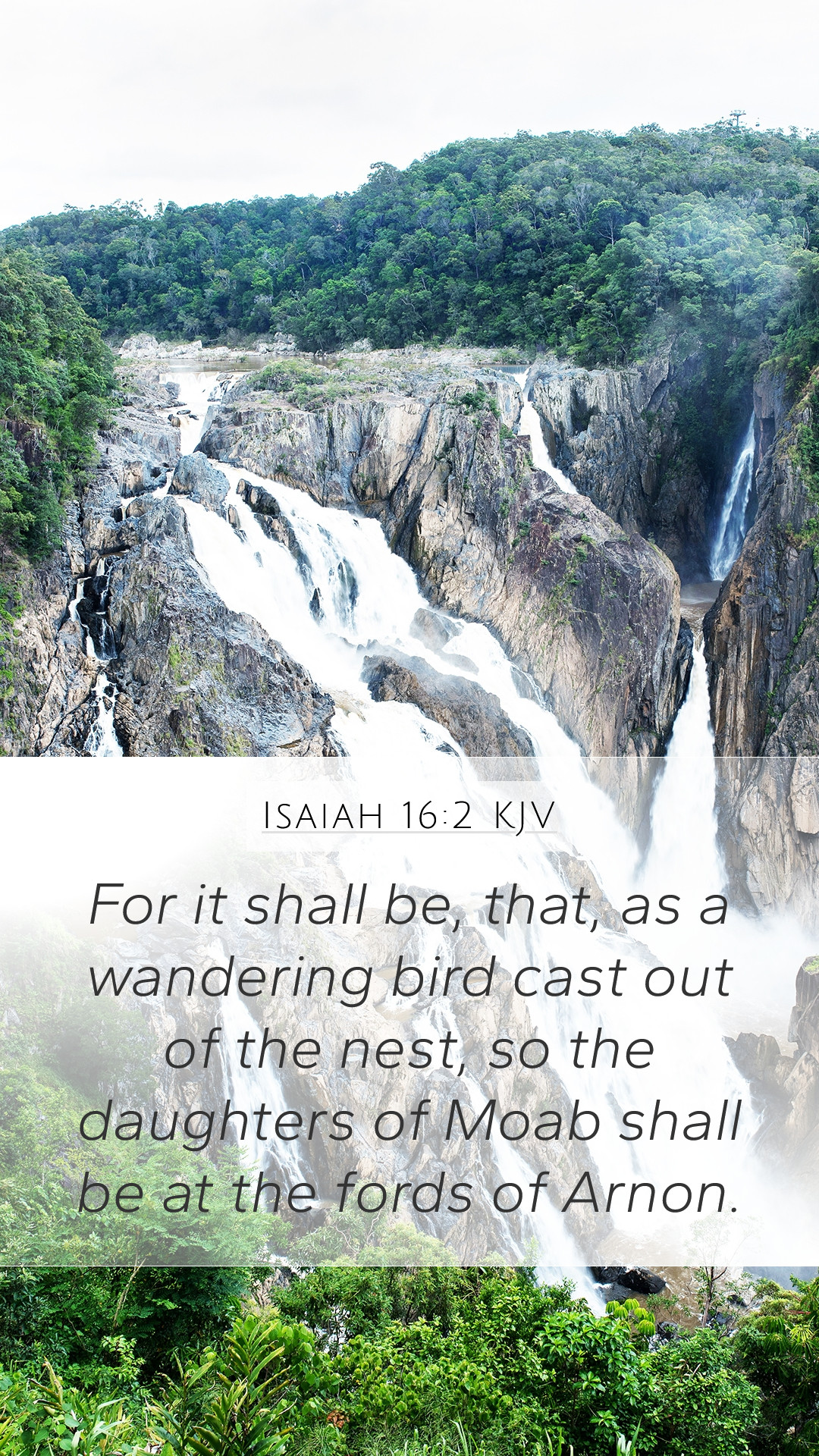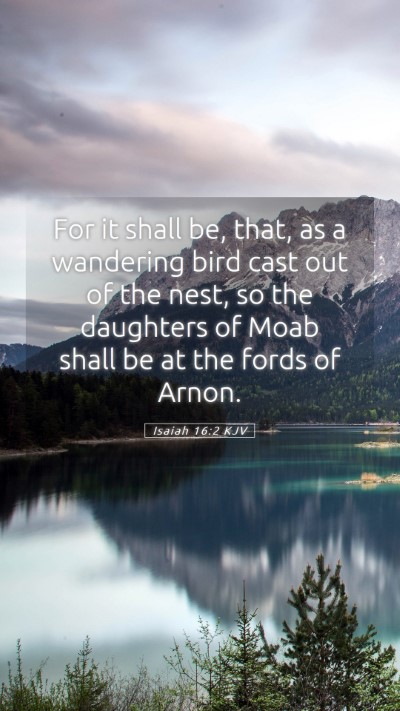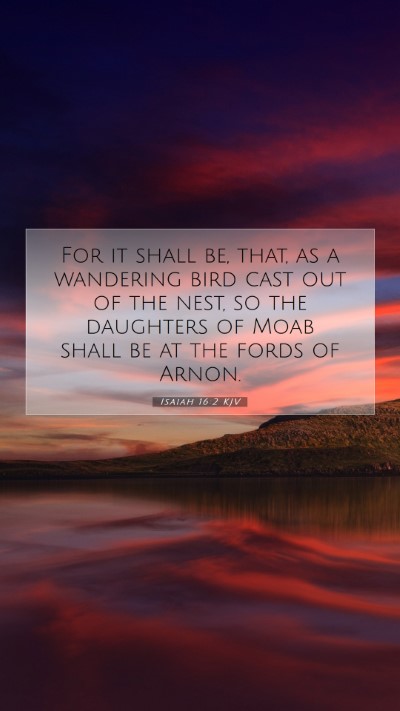Understanding Isaiah 16:2
Isaiah 16:2 states: "For it shall be, that, as a wandering bird cast out of the nest, so the daughters of Moab shall be at the fords of Arnon." This verse speaks to the plight of the Moabites, reflecting their situation of desolation and need for assistance. To grasp the full meaning of this verse, let's delve into the biblical context and interpretations offered by various public domain commentaries.
Overview of the Verse
This passage from the Book of Isaiah uses the metaphor of a wandering bird to illustrate the vulnerability and desperation of the Moabites. Just as a bird cast out of its nest lacks safety and direction, the Moabite people find themselves in a precarious position, facing exile and uncertainty.
Commentary Insights
-
Matthew Henry's Commentary:
Matthew Henry emphasizes the imagery of the "wandering bird" to highlight the sense of loss and helplessness experienced by the Moabites. They are depicted as being forced out of their homeland, akin to a bird separated from its nest. This scenario is representative of God's judgment upon Moab, urging a cry for deliverance and reconnecting with their homeland.
-
Albert Barnes' Notes:
Barnes elaborates on the significance of the "fords of Arnon," indicating strategic locations where the Moabites may seek refuge. The reference to Arnon, a river that marked the boundary between Moab and Israel, suggests Moab's attempts to regain strength and negotiate peace amidst surrounding threats. This signals a moment of vulnerability but also an opportunity for hope and restoration.
-
Adam Clarke's Commentary:
Clarke points out that this verse also serves as an invitation for the Moabites to seek help and establish connections with others for survival. The wandering bird symbolizes not just loss but also the instinct to find safety, reflecting humanity's innate desire for security and community in times of crisis. Clarke urges readers to recognize the broader spiritual implications—our need for God's guidance and refuge during life's challenges.
Symbolism and Meaning
The bird in this verse does not only represent the Moabites but can also be understood as a broader symbol of anyone facing turmoil or displacement:
- Desperation: The illustration of a bird without a nest embodies the sense of urgency and dire need for assistance.
- Isolation: The state of being 'cast out' indicates not just physical displacement, but also emotional and spiritual isolation.
- Hope for Restoration: Despite the bleak imagery, the reference to the fords signifies paths toward healing and returning to safety.
Application in Daily Life
Understanding this Bible verse allows us to reflect on our own lives:
- We may find ourselves in moments of vulnerability, feeling as lost as the bird in the nest.
- The imagery calls us to seek help from our community and God, particularly during trying times.
- Recognizing our fragility can lead us to build supportive relationships, much like the Moabites are encouraged to seek alliances.
Related Scripture References
- Jeremiah 48:34-35: This passage further elaborates on the doom of Moab and its people, mirroring the themes found in Isaiah 16.
- Deuteronomy 2:9: Discusses God's command regarding the Moabites, highlighting the historical context of their relationship with Israel.
- Psalm 56:8-9: Reflects an individual’s longing for divine protection in times of distress, paralleling the need for safety found in Isaiah.
Conclusion
Isaiah 16:2 serves as a profound reminder of the human experience of suffering, displacement, and the quest for hope and restoration. Through careful biblical exegesis and commentary, we learn not only about the Moabites but also about our own lives—encouraging us to seek solace and community while navigating challenges.
Further Study and Reflection
For those engaged in Bible study, this verse invites further exploration into themes of exile, divine judgment, and the human response to crisis:
- Consider forming Bible study groups to discuss this verse's implications and how they resonate with contemporary issues.
- Utilize Bible study tools and resources to expand upon these insights and deepen your understanding of the text.
- Explore online Bible study platforms that provide additional commentary and group discussions.


